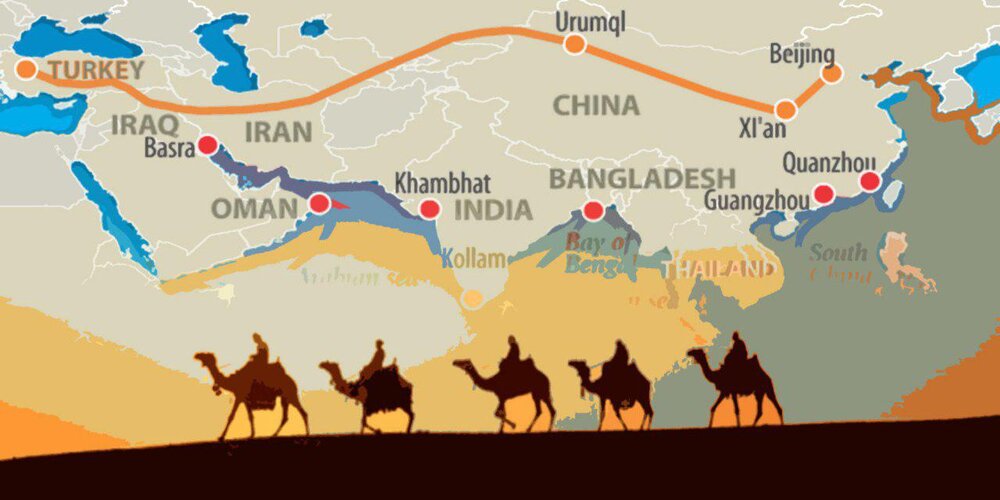Tehran welcomes Beijing's initiative to revive glory of ancient Silk Road

TEHRAN – Iran’s tourism minister Ali-Asghar Mounesan has said Iran backs China’s initiative for reviving the glory of ancient Silk Road, which existed for thousands of years, passing through many different empires, kingdoms, reigns and societies throughout history.
As one of the countries under the China-proposed Belt and Road Initiative (BRI), Iran enables cultural communication between the East and the West.
“The BRI tightly connected many amicable countries along the Silk Road, and I am very glad that Iran could join in the initiative because it is helping to restore the glory of the ancient road,” the Global Times quoted Mounesan as saying on Friday.
The visiting Iranian minister made the remarks on Friday on the sidelines of the third ministerial meeting of the Ancient Civilizations Forum, which was held in Beijing, China.
The minister voiced hope that more Chinese travelers to visit Iran as he pointed at China a huge tourism market.
Back in June, the Iranian government approved a proposal for allowing visa-free entry of the Chinese nationals into the country. The law took effect on July 16. The decision came in response to a joint request by the Foreign Ministry and the then Iran’s Cultural Heritage, Handicrafts and Tourism Organization of Iran (which later transformed into a ministry).
Mounesan also noted that apart from tourism, Iran would also welcome cooperation with China in the preservation and restoration of cultural relics, the report said.
“China and Iran are two countries with ancient civilizations. Both have many rich world heritage sites, and we are open to learning from each other,” Mounesan said, noting that preserving traditional culture in the new era is very important.
Mounesan also voiced support for China’s efforts to enhance its local culture, mentioning the Palace Museum's attempts to develop creative cultural industries to attract young people. Iran is also trying to keep its traditional culture alive through various art forms including film, drama, traditional clothes and handicrafts.
“I am very happy that some [handicraft] experts are young people, and they do like their jobs. In fact, Iran has become one of the largest exporters of handicrafts in the world. Last year, exports of handicrafts in Iran reached $600 million, and we want to set a target of $2 billion.”
Elsewhere in his remarks, the Iranian minister criticized some Western countries that do not have an ancient cultural background but are trying to create a kind of new culture, which is influencing the younger generation and causing traditional culture to be ignored.
“We have realized the phenomenon of cultural hegemony, but fortunately, more and more young people know their root culture. For example, art majors in universities are very popular among students. However, we still need more talks to face the cultural wave.”
UNESCO says that ancient Silk Road has connected civilizations and brought peoples and cultures into contact with each other from across the world for thousands of years, permitting not only an exchange of goods but an interaction of ideas and cultures that has shaped our world today.
AFM/MG
Leave a Comment